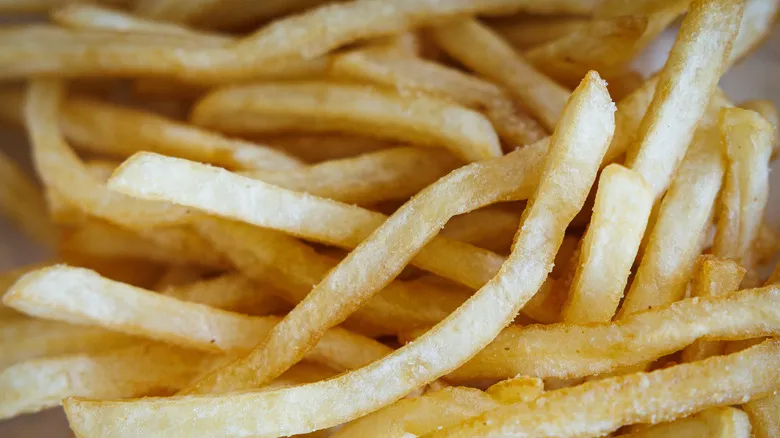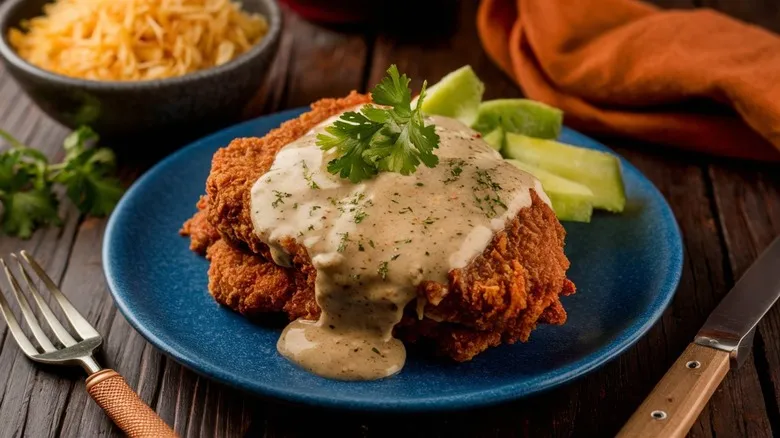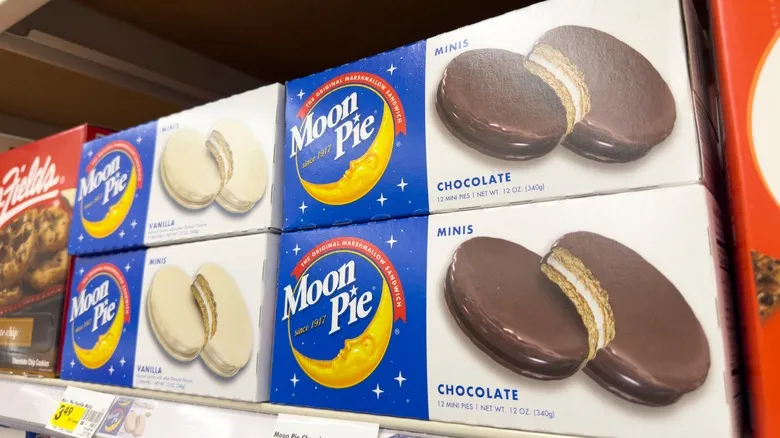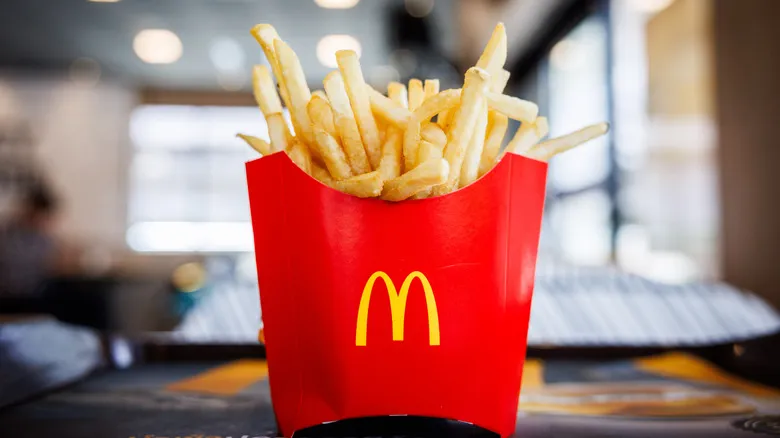One controversial ingredient is unique to McDonald's

Putting the current ingredient list aside, dedicated food enthusiasts and fans are well aware that McDonald's fry recipe underwent a notable change—one that many argue was for the worse—back in the early 1990s. This isn't the only case of a cherished recipe being altered unfavorably; numerous fans express disappointment that the new formula simply doesn't compare to the original, which was cooked in pure beef fat. In response to growing health concerns, McDonald's transitioned from beef fat to a blend of oils, resulting in a longer ingredient list and, according to some, a loss of the iconic, rich flavor. For those who weren't around or old enough to savor the original version, there are homemade recipes that strive to replicate that classic taste and texture.
Another significant alteration that expanded the ingredient list and disappointed gluten-free and vegan diners was the addition of "natural beef flavoring," which contains both dairy and gluten. This setback for plant-based eaters is made even more frustrating by the fact that McDonald's fries are entirely vegan-friendly in Canada and the U.K. (though still containing gluten), where the ingredient list is much simpler.
Regardless of the ingredient discussions, most everyday people and online commenters agree—McDonald's serves up some of the tastiest fries available at a drive-thru. It appears that their lengthy ingredient list is still doing the trick.
Recommended

The Reason Challah Is Round As Opposed To Braided For Rosh Hashanah

Is Schnitzel Essentially Just Chicken-Fried Steak?

How Moon Pies And RC Cola Became A Southern Pairing

The Unique Cheese That's Synonymous With St. Louis
Next up

